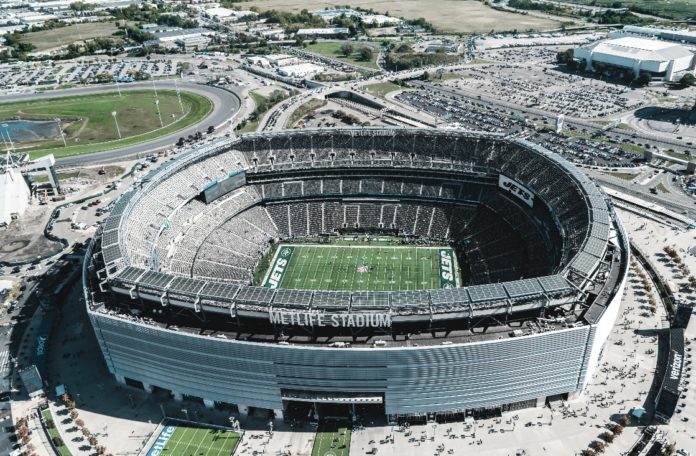Governor Phil Murphy today signed legislation (S721), strengthening the state’s threat response infrastructure by enhancing security requirements for large venues.
The legislation requires certain public venues and places of worship to submit emergency plans to law enforcement agencies for the purpose of preparing for mass casualty and active shooter events.
This bill requires sports and entertainment facilities capable of seating more than 5,000 people, movie theaters capable of seating more than 1,000 people, and places of worship capable of seating more than 500 people to annually prepare and maintain an emergency operations plan in coordination with the appropriate local fire, law enforcement, and emergency response agencies.
The emergency operations plan must be submitted to the chief law enforcement officer who serves the municipality in which the sports and entertainment facility, movie theater, or place of worship is located.
Primary sponsors of the legislation include Senators Richard Codey and Joseph Cryan, and Assemblymembers Gary Schaer, Britnee Timberlake, and Joe Danielsen.
“Our response to gun violence must remain proactive, not reactive,” said Attorney General Matthew J. Platkin.” Security plans play an important role in how quickly and effectively law enforcement can respond to emergencies, and protect the safety of our residents. By requiring public spaces – including our often targeted houses of worship – to prepare effective emergency procedures, our officers will have the information they need to act swiftly and with precision, which could undoubtedly help save lives.”
“When responding to an active shooter or mass casualty incident, officers are forced to make a variety of critical decisions. The time for developing a policy is prior to the event, not during, which is why the signing of this legislation is so crucial,” said Colonel Patrick J. Callahan, Superintendent of the New Jersey State Police. “The requirements set forth in this bill will enable law enforcement agencies to minimize response times to critical incidents, eliminate threats, and provide aid to those in need.”
“This is a significant step forward in resiliency efforts for the State of New Jersey,” said New Jersey Office of Homeland Security and Preparedness Director Laurie R. Doran. “New Jersey continues to be at the forefront of national efforts for preparedness and joint response. This bill will further enhance our capabilities of strategic planning and cooperation to deter and defend against an ever-evolving threat landscape.”
“As we have all seen recently, mass shootings are a real and scary risk in our country,” said Senator Richard Codey. “The latest mass shootings and the way that they were handled by law enforcement have reaffirmed the importance of being prepared for these scenarios, as they happen unexpectedly and with no warning. In these situations, every second matters and lives should not be lost due to first responders needing to figure out how to safely enter a building. By having a plan in place for first responders, we can ensure that our officers are equipped with the expertise of how to best handle the active shooter threat and save more individuals from Injury or death.”
“We continue to witness a disturbing increase in the number of hate crimes targeted at people or facilities based on race, religion and ethnicity,” said Senator Joe Cryan, who previously served as Union County Sheriff. “Acting proactively will help protect houses of worship, community centers and other non-profit institutions that are most vulnerable from acts of violence. By requiring emergency plans from these venues, we can make them safer and more secure. We won’t allow bias or hate to intimidate anyone from practicing their religion, honoring their ethnic pride or gathering freely for other purposes.”
“Through this law, our emergency responders and communities of faith will build proactive partnerships to increase public safety,” said Assemblyman Gary Schaer. “Emergency response plans that include building layouts allow our law enforcement personnel to effectively resolve any threats. I will continue to fight so every New Jersey resident can worship without fear.”
“Preparedness is key for a swift response to any emergent situation. Putting building blueprints in the hands of law enforcement in addition to local fire and emergency response agencies ahead of time ensures our coordinated response is as effective as it can be, should the worst-case scenario happen,” said Assemblywoman Britnee Timberlake. “Everyone should be able to freely live and worship without fear. This is a basic founding principle of our country.”
“With the number of bias incidents in New Jersey reported to be up by 65 percent, the time for this law has never been more appropriate,” said Assemblyman Joe Danielsen. “Extending access to building plans to law enforcement is critical for quick response and is in the best interest of public safety for all our communities.”
“In light of the current climate of our nation, this bill is of vital importance,” said Rev. Dr. Kenneth D.R. Clayton. “It will cause for houses of worship and other public venues to plan for and be proactive about such possible occurrences and in so doing lives could be spared death and possible harm.”
“It is so important for Houses of Worship to work closely with local law enforcement to help keep communities safe,” said Rabbi Schapiro, Chabad of the Shore. “This open communication will lead to a more safe and secure environment for people of all faiths and religions.”
“For the safety and security of the Sangat, it’s imperative that we plan and implement security plans with the help of the law enforcement community to protect our congregations,” said Yadvinder Singh, President of New Jersey Sikh Gurdwara Council. “Bringing this issue into legal framework will help its implementation! NJ Sikh Gurdwara Council welcomes this step by the NJ Legislature and Governor Murphy. Thanks for keeping NJ safe.”

